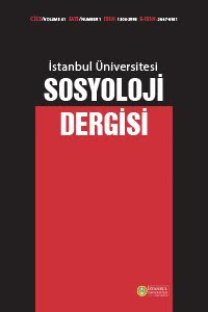Yaşa Göre Değer Farklılıkları ve Siyasi Kuşak Aidiyeti
Araştırmada yaşın bireysel değerlere katkısı ve politik kuşak aidiyetinin etkisi, '68 ve '78 kuşakları ile Özal sonrası kuşak üzerinden incelenmiştir. Araştırma verisi, İstanbul'da kendilerini politik kuşak aidiyeti ile ifade eden dernek ve vakıf üyelerinin yanı sıra internet grupları, üniversite öğrencileri ve mezun dernekleri üyelerine uygulanan 301 anketten elde edilmiştir. 29 değer ifadesi ile Schwartz'ın Değerler Ölçeği'ndeki sekiz değer boyutuna ulaşılmıştır. Araştırmanın üç hipotezinden ilki, yaş ilerledikçe kendini aşma ve muhafazacı yaklaşımın, yeniliğe açıklık ve kendini yüceltme değerlerine göre yüksek olacağıdır. İkinci hipotez, kuşak aidiyeti farklı olanlar aynı yaş grubunda olsalar da farklı değerlere ve aynı kuşaktan olanlarla benzer değerlere sahip olacağı yönündedir. Üçüncü hipotez, cinsiyet, birden fazla dil bilme ve eğitim düzeyinin değerlerde fark oluşturacağı şeklindedir. Araştırma sorusu olan yüksek gelir düzeyi “iyilikseverlik”, evlilik “yetkin, çevreci ve maceracı olma” ve çalışıyor olmak ise “yetkin olma”da fark oluşturmuştur. Araştırma sonucunda, hipotezler ve araştırma sorusu kısmi olarak desteklenmiştir.
The Value Differences According to Age and Political Generation Belonging
In this study, the contribution of age to individual values and impact of political generation belonging are researched based on the generations of '68 and '78, and the generation after Özal. Data has been collected through 301 surveys applied to members of associations and foundations expressing themselves based on belonging to certain political generations, internet groups, university students, and university alumnus in Istanbul. With 29 value items, eight value dimensions of Schwartz's Value Survey have been reached. The first hypothesis tested was that being old will lead to increased conservation and self-transcendence rather than self- enhancement and openness to change in values. According to the second hypothesis, apart from the age, belonging to different generations leads to believing in different values. And the third hypothesis is that gender, knowing more than one language and higher education generate value differences. In this paper, I shall present a research question inquiring if high incomes generated differences on “benevolence”, being married on “competence, environmentalism and stimulation” and working position on “competence” values. As a result of this study, the hypotheses and the research question were partially supported.
